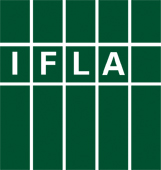 [Joint Statement] On Monday 16th and Tuesday 17th January, representatives of European governments will discuss draft legislation to implement the Marrakesh Treaty in the European Union (EU).
[Joint Statement] On Monday 16th and Tuesday 17th January, representatives of European governments will discuss draft legislation to implement the Marrakesh Treaty in the European Union (EU).
As IFLA and partner organisations have underlined, this is an opportunity to make a real difference to the lives of people with print disabilities – who cannot pick up and read a book in the same way as everyone else – both in Europe and beyond.
We are, however, aware of efforts to undermine the impact of Marrakesh. This will happen if national governments can oblige libraries and others to pay fees to publishers for making use of their Marrakesh rights, or if they are subject to additional, unnecessary, registration or record-keeping requirements. Both IFLA and EIFL have highlighted the risks of such moves.
The below statement (also available to download), released on 13 January, sets out our concerns, and what we expect of the EU’s Member States.
Don’t Go Back on the Deal: No Barriers to Realising the Promise of the Marrakesh Treaty
The Marrakesh Treaty for persons with print disabilities was painstakingly negotiated and agreed upon by WIPO member states, including the EU and its member states, over five long years before its adoption in June 2013.
The result promised to end the ‘book famine’, the fact that less than 7% of published works are made available globally in accessible formats, such as Braille, audio and large print, and digital formats. Since then, the EU and individual member states have signed the Treaty indicating an intention to “do no harm” – to do nothing contrary to the spirit of Marrakesh. But now some European governments risk doing just that.
Commission proposals that largely respect the spirit and objective of the Treaty were broadly welcomed by the library community, especially, the exclusion of barriers such as compensation schemes and commercial availability checks in the provision of accessible format copies.
But the Commission’s good intentions, and the rights of Europeans with print disabilities, risk being undermined in the Council of Ministers. A proposal by Germany to re-introduce remuneration rights for secondary rightholders, such as publishers, as well as other attempts to impose burdensome rules on ‘authorized entities’, such as libraries, would have this effect.
Europe’s leaders shouldn’t let us down. IFLA, EIFL and EBLIDA urgently call on the Council to:
- Rule out payments to rightholders for the making of accessible format copies. Libraries pay to buy original books, and spend large sums producing accessible formats. An extra payment would be, in effect, a tax on the right to read, and a reward to publishers for market failure. The German proposal is not required by the Treaty and is unjustified.
- Rule out commercial availability checks before libraries and beneficiaries can use the exceptions. Such checks are unworkable in practice, especially in cross-border situations. If a suitable accessible format is readily available on the market, then libraries will turn to this in any case to avoid duplication of effort and to save public funds.
- Encourage as many institutions as possible to provide services to persons with print disabilities. European legislation should not make it possible to limit the number or type of authorised entities that can provide accessible formats, including all types of public, education, community and special libraries.
- Trust libraries and other authorized entities to do their job. Libraries are regulated, accountable institutions, and respect copyright. Putting obstacles, such as unnecessary record-keeping requirements, in the way of services to users with print-disabilities creates discrimination, contrary to Articles 21 and 30 of the Convention on the Rights of Persons with Disabilities.
Europe’s decision-makers have the choice between showing leadership to the world, or betraying some of their most vulnerable citizens.
We call on them to make the right decision.
For more information, contact: stephen.wyber@ifla.org ; vincent.bonnet@eblida.org; teresa.hackett@eifl.net




